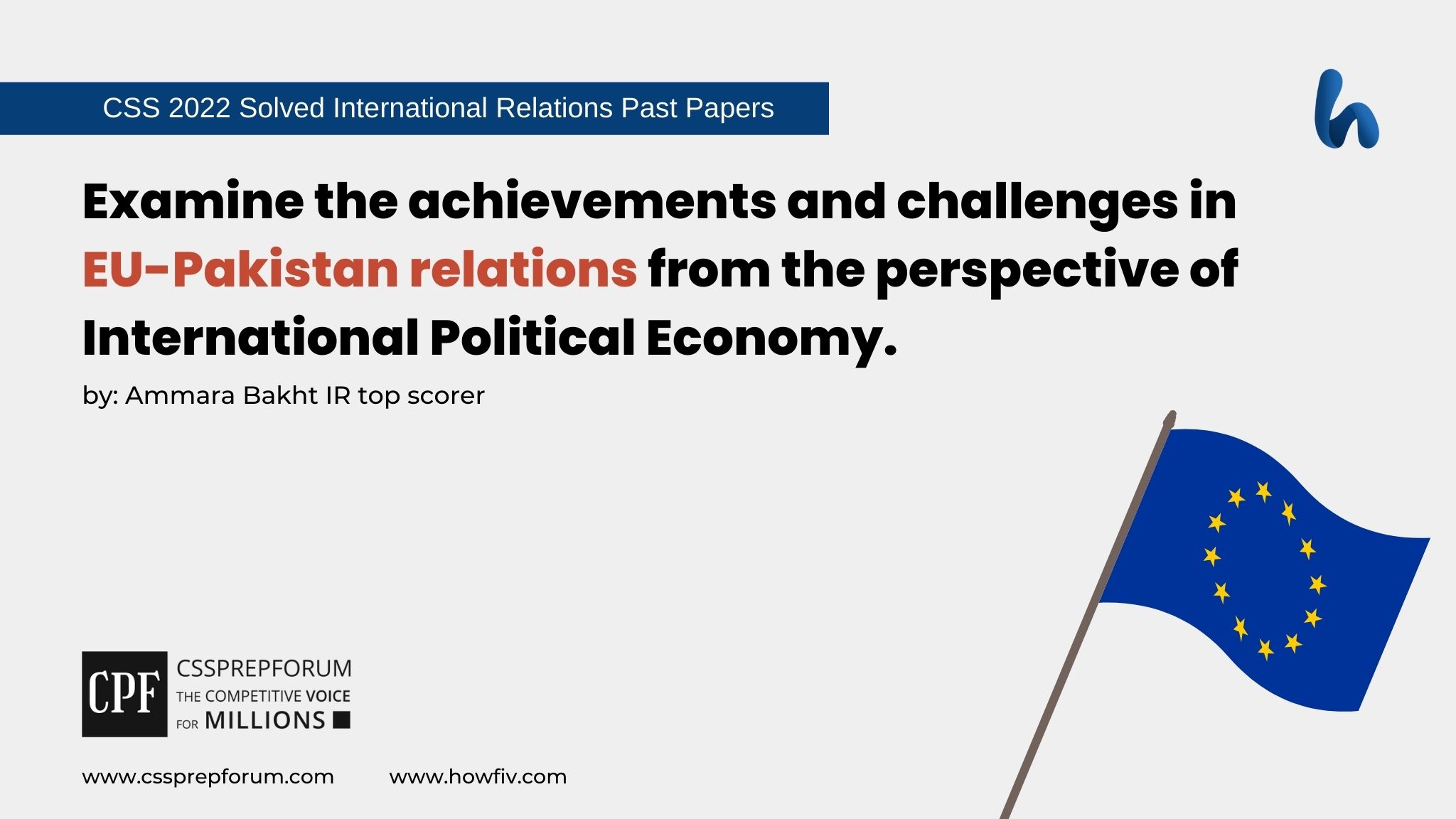Q7. Examine the achievements and challenges in EU-Pakistan relations from the perspective of International political economy.

Achievements and challenges in EU-Pakistan relations from the perspective of international political economy can be examined as follows:
1. Achievements:
a) Trade and Investment: The European Union (EU) is one of Pakistan’s largest trading partners and a significant source of foreign direct investment. The EU’s Generalized Scheme of Preferences (GSP) provides trade concessions to Pakistan, enhancing its access to the EU market. This has contributed to increased bilateral trade and economic cooperation.
b) Development Assistance: The EU has been a major contributor of development assistance to Pakistan, supporting various sectors such as education, health, infrastructure, and governance. This assistance has helped Pakistan address socio-economic challenges and promote development.
c) Cooperation in Energy and Infrastructure: The EU has supported Pakistan’s energy sector development, including renewable energy projects. Additionally, the EU has collaborated with Pakistan on infrastructure initiatives, such as the development of transportation networks, which promote connectivity and trade facilitation.
2. Challenges:
a) Trade Barriers and Market Access: Despite the achievements in trade, Pakistan faces challenges related to trade barriers and market access in the EU. Non-tariff barriers, regulatory hurdles, and technical standards pose obstacles to Pakistani exports, limiting their competitiveness in the EU market.
b) Governance and Human Rights Concerns: The EU has raised concerns about governance issues, human rights, and the rule of law in Pakistan. These concerns can impact the bilateral relationship, particularly in terms of trade preferences and development cooperation.
c) Security and Regional Instability: Security challenges in Pakistan, including terrorism and regional instability, affect the investment climate and economic prospects. These issues can dampen investor confidence and impede deeper economic cooperation between the EU and Pakistan.
3. Potential Areas of Cooperation:
a) Enhanced Trade and Market Access: Addressing trade barriers, enhancing market access, and promoting economic integration can strengthen EU-Pakistan relations. Negotiating a comprehensive Free Trade Agreement (FTA) or expanding the scope of the existing GSP scheme can facilitate greater trade flows and economic cooperation.
b) Sustainable Development and Climate Change: Collaborating on sustainable development goals, climate change mitigation, and renewable energy initiatives can provide avenues for cooperation. The EU’s expertise and support in these areas can assist Pakistan in addressing environmental challenges and promoting sustainable growth.
c) Strengthening Governance and Human Rights: Addressing governance issues, promoting human rights, and strengthening the rule of law are essential for building a stronger partnership between the EU and Pakistan. Engaging in constructive dialogue and capacity-building efforts can contribute to progress in these areas.
In conclusion, EU-Pakistan relations in the context of international political economy have witnessed achievements in trade, investment, development assistance, and cooperation in energy and infrastructure. However, challenges persist in terms of trade barriers, governance concerns, and security issues. By addressing these challenges and exploring potential areas of cooperation, the EU and Pakistan can further deepen their economic ties, enhance trade relations, and promote sustainable development.